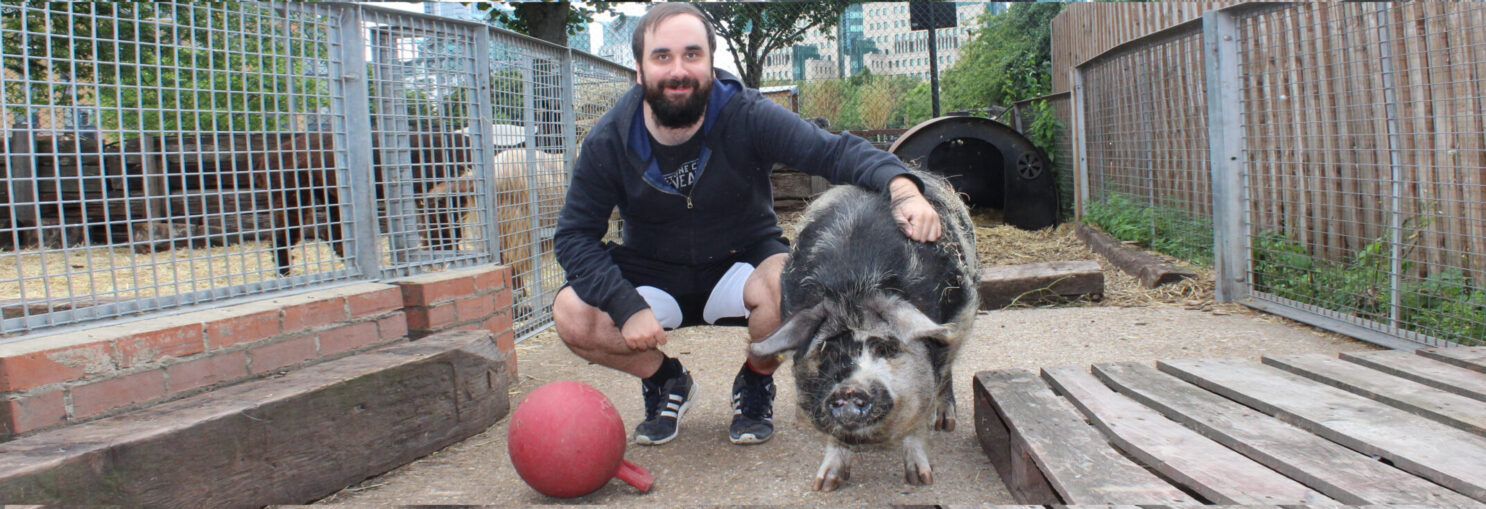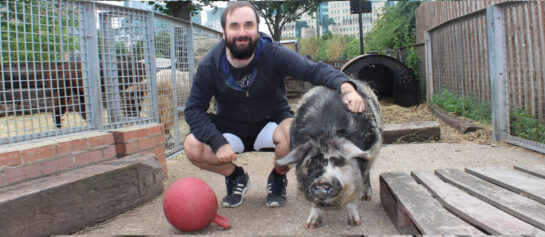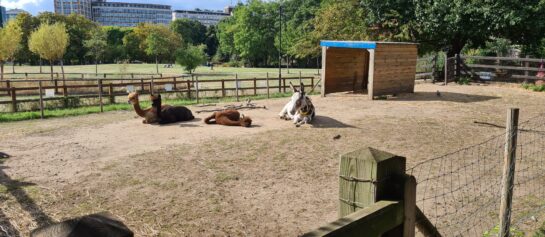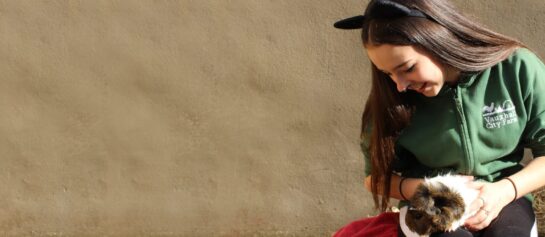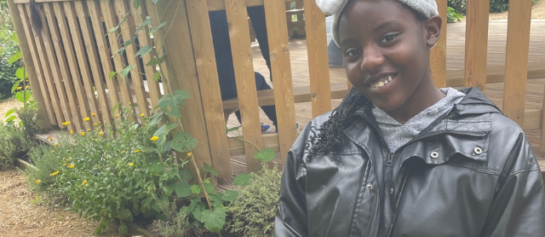We can tell you all about the benefits of volunteering, but it’s always better to hear it straight from the source! Thomas wrote this wonderful article about his first time volunteering at Vauxhall City Farm and has kindly given us permission to reproduce it.
For a lot of people in their twenties, living in a city like London isn’t easy. For starters, there’s the realisation we probably won’t get on the property ladder anytime soon. Add to that extortionate rents, £6 pints, some of the worst pollution levels in the world and political uncertainty caused by the referendum that shall not be named, and it’s no surprise that city dwellers have a 40% higher risk of developing depression.
My own anxiety regularly makes me question everything from my career choices to my need to leave the house. When this cloud of doom washes over me, I slip into an all too familiar pattern: I put Radiohead’s Kid A on repeat, spend hours ruminating in a bath filled with about three bottles of Imperial Leather, and then proceed to sit in a towel while rewatching The Sopranos for the 15th time.
I’m about two days into this familiar pattern when I make the decision to leave the house and volunteer at Vauxhall City Farm, a home to hundreds of animals – from goats and pigs to horses, ducks and alpacas. Community-led urban farms such as this one are on the rise and can now be found across the city, from Hackney to Waterloo. They allow urbanites the chance to reconnect with nature, learn about animals and shed some stress along the way.
Which is why I’m here, at Silly AM, being asked by a 24-year-old farmyard supervisor named Sophie to muck out a barn where dozens of goat and sheep sleep. Sure, loading urine-soaked hay into a wheelbarrow might not sound like the most glamorous of tasks, but there’s something gratifying about making a barn nice and snug for these animals. Almost immediately, I feel my stress-induced stomach cramps begin to ease.
While I’m cleaning out the barn, two goats, Maple and Dandy, come over to check I’m doing it to their standards. I’m told they are inseparable and there’s certainly an intensity in the way they look at one another. A lamb also wanders over and climbs on my chest looking for cuddles. I’m not sure who’s more grateful, the lamb for being indulged or me for the Cortisol-busting effect of petting him.
While having a quick cuppa break, I meet Sinead, a middle-aged volunteer at the farm, which, having been established in 1977 by a group of architects squatting at St Oswald’s Place, is now a registered charity, providing a sense of community and purpose for people who have fallen on hard times. “All the animals have such big personalities. I love the baby lambs the most!” she excitedly tells me. “Honestly, this place has been like therapy for me. Before I was having panic attacks all the time and just dropping out of life. This farm and looking after these animals has got me back on the straight and narrow. It really was do or die for me; this farm changed my life.”
It’s opening time and a bunch of toddlers are leaking through the gates, eager to stroke the animals. Sinead and I are instructed to take a spot in the goat enclosure alongside best friends Freddie, a light brown goat who enjoys nuzzling into your chest, and Barnaby, a plump thing only interested in finding food supplies. Our goal? To sell five minute of goat petting time for £3.
A little girl is first through the doors.
As she strokes Freddie [the goat], she whispers: “Daddy, he’s my best friend.”
A little girl is first through the doors. As she strokes Freddie, she whispers: “Daddy, he’s my best friend.” My heart melts, but I’m also a little jealous; ten minutes ago Freddie only had eyes for me. As we let another small child into the enclosure, Barnaby makes his escape, convinced food paradise awaits on the other side of the gate. For a few seconds, it’s pandemonium. But then Sinead manages to skilfully grab Barnaby and bring him back in. Within seconds, he’s receiving fresh treats from strangers and all is forgotten.
In total, me and Sinead raise about £20. This might not sound like a lot of money, but it’s these kind of donations that are keeping Vauxhall City Farm afloat. “The government stopped giving us any funding, even though the farm provides educational classes to children,” says Sophie, who aspires to be a farm stock manager. “Without the public’s donations we wouldn’t be able to do any of this!”
For a lot of children, visiting the farm also provides something they rarely experience. “A lot of these kids grow up on council estates and rarely get to see any animals,” one mother tells me. “This farm doesn’t just educate them but also reminds them that there’s organic life beyond the concrete jungle.”
It’s early afternoon and I’m finally meeting the farm’s famous pigs, Jenny and Edward. These New Zealand Kunekunes, which literally translates to fat and round in the Maori language, have been at the farm since 2012. They are bloody smart too; Edward sits down if you tell him to and Jenny enjoys kicking a football around.
The truth is, in London it’s easy to get lost in an infinite pile of work and responsibilities. You forget to prioritise escapism because it’s impossible to escape the everyday. Volunteering at a city farm forces you to break this dangerous cycle. Watching a pig called Edward roll about on its back because you’ve just given him a snack is a nicer feeling than worrying for three hours that your articles aren’t getting enough retweets on Twitter. Watching a baby lamb relax in the sun is a greater reality than worrying about never getting on the property ladder. And seeing people like Sinead walk around with a smile on their face serves as a reminder of just how great this city of ours can be.
Photos & article credit: Thomas Hobbs.
This article was originally published on eventbrite.com and you can find Thomas Hobbs on twitter.
Support the farm and the animals now!
